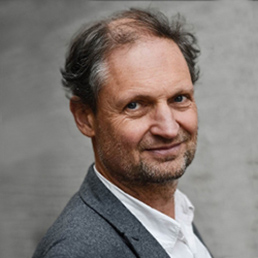Negatywne doświadczenia często prześladują ofiary przez lata i są powodem wielu problemów związanych ze zdrowiem i tworzeniem szczęśliwych związków międzyludzkich. Imagery Rescripting to metoda terapeutyczna, która pomaga pacjentom w radzeniu sobie z trudnymi przeżyciami poprzez tworzenie nowych scenariuszy traumatycznych wydarzeń z ich życia. Podczas swojego wykładu prof. Arnoud Arntz z Uniwersytetu w Amsterdamie opowie o zastosowaniu Imagery Rescripting w leczeniu różnych zaburzeń psychicznych.
Wykład będzie prowadzony w języku angielskim z tłumaczeniem na język polski.
Wstęp wolny po wypełnieniu formularza zgłoszeniowego.
Wydarzenie objęte jest patronatem Strefy Psyche.
Imagery Rescripting as Transdiagnostic Treatment Technique
Imagery Rescripting (ImRs) is an experiential method to process memories of negative experiences that lie at the root of many patients’ problems, even if patients are not aware of this relationship.
In Imagery Rescripting, patients imagine the original experience, but alter the sequence of events so that their needs are better met. With very complex cases and early trauma’s, the focus is on memories from childhood and it is usually the therapist leading the Rescripting and the therapist who intervenes in fantasy to stop abuse, brings safety, and corrects misconceptions about the experience, whilst the patient imagines being the child. With less complex cases and in adult trauma/negative experiences, it is usually the patient who leads the rescripting.
ImRs has a wide range of applications, from PTSD, chronic depression, treatment-resistant anxiety and eating disorders to personality disorders. Moreover, it is a standard treatment of nightmares. With patients suffering from visual intrusions the application is quite straightforward as the intrusions, or the memories that they are based on, can be directly addressed in Imagery Rescripting. However with other problems, like a negative self-view or distrust in others, first memories of experiences that underlie such basic schemas need to be found. Usually the use of an ‘affect bridge’ between a recent experience of activation of the schema and a spontaneous early memory helps, and applications of this in a wide range of clinical problems have been found to be effective.
Imagery Rescripting has a number of attractive elements, including its broad and flexible range of application, its focus on changing the meaning of the experience, and the fact that it is not necessary to relive the whole trauma in all its details (which increases acceptability and usefulness for very severe case). In this lecture the clinical effectiveness of ImRs will be discussed, as well as laboratory studies into basic mechanisms that underlie ImRs, indicating that ImRs indeed works thru meaningful change.
Speaker

Arnoud Arntz – Professor of Clinical Psychology and chair of the Department of Psychology at the University of Amsterdam, the Netherlands. His main research interests include PTSD and personality disorders, both applied and fundamental. He is also practicing therapist at PsyQ in Amsterdam, where he treats patients with trauma and personality disorders. He is a former editor of the Journal of Behavior Therapy and Experimental Psychiatry.
Termin i miejsce
2 kwietnia 2020 r., godz. 17.00–18.00, sala A001
Uniwersytet SWPS w Poznaniu
ul. gen. Tadeusza Kutrzeby 10
61-719 Poznań
Kontakt
Anna Szulczewska
tel. 785 643 688
e-mail: [email protected]













